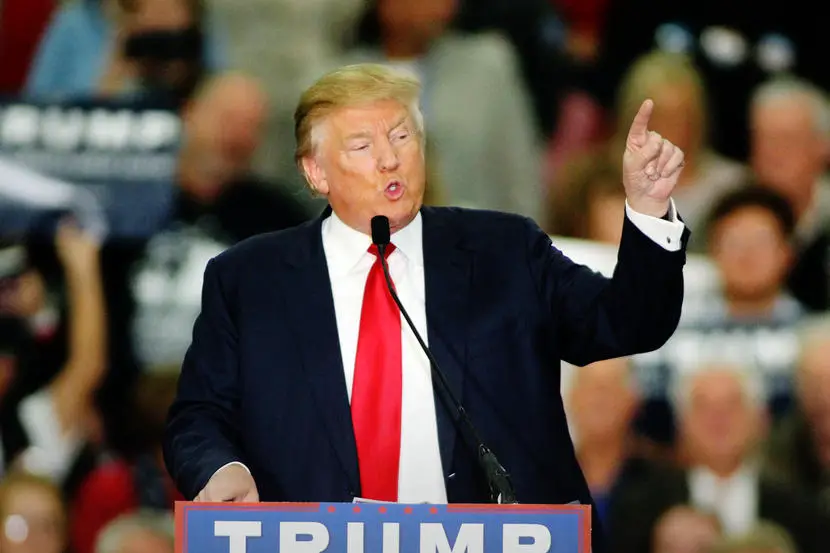Should a party’s nominee be chosen by the party, or by voters? In most of our history, two groups (tribes) had a hierarchy, and rules to decide who would be their leader. These “tribes,” known as political parties, offered the strongest candidate they had to run against the candidate chosen by the other party.
Then, increasingly, “We the People” (grassroots activists) asserted themselves—against their own party organization (“The Establishment”). However, now, with open primaries, outsiders (independents) can actually choose a party’s candidate, especially in close primary races. And too often, members of the opposing party can make the choice–voting for the worst, weakest, unworthy candidate to run against the opposing candidate in the fall. Mischief.
People think it’s “game over” in the Republican primaries. There’s only “one man standing.” But that’s because most people don’t think it’s possible that “The Empire Strikes Back.” In this case, “Darth Vader” is a non-stooge named “Curly” (minus the “nyuck, nyuck, nyuck”). And he’s been saying the same thing for a long time—this from March:
“The media has created the perception that the voters choose the nomination. That’s the conflict here,” Curly Haugland, an unbound GOP delegate from North Dakota, told CNBC’s “Squawk Box” on Wednesday. He even questioned why primaries and caucuses are held. . .
“The rules haven’t kept up,” Haugland said. “The rules are still designed to have a political party choose its nominee at a convention. That’s just the way it is. I can’t help it. Don’t hate me because I love the rules.”
Well, it’s May, and Curly is back.
In March, he blasted out a letter to fellow Republican National Committee members with the subject line: “NEWS FLASH: All Republican Delegates to the 2016 Republican National Convention are Unbound!” He’s on a mission to let all the delegates at the convention in Cleveland to vote however they’d like on the first ballot, no matter whom their state’s voters chose. . .
In April, Eric O’Keefe, a Cruz supporter and Club for Growth activist, told the Wall Street Journal that he would lobby Republican delegates to assert their right to reject Trump at the convention. . .
On the surface, Haugland’s lonely stance seems to contradict every democratic reform of the presidential nominating process from the past 45 years: moves by Democrats and Republicans away from smoke-filled rooms to party primaries, especially open contests that allow independents to vote.”
Actually, the idea goes back to at least September.
Republican Party bosses could rig the arcane rules governing awarding delegates and convention votes to keep the nomination from Trump. “I think they eventually will,” said Curly Haugland. . .Convention delegates and nobody else, he says, get to choose the 2016 presidential ticket.
“Everybody is depending on these primary results, except it is all built on a house of cards, fabricated reality,” he said.
It’s ironic that Haugland used the actual name of Kevin Spacey’s Netflix political drama, “House of Cards.” But it’s fitting.
Why in the world would a political party throw out all the primaries and pick its own nominee? Wouldn’t that be political suicide? Maybe not as bad as the alternative. As noted elsewhere, William Kristol, editor of the Weekly Standard, has been actively—and publicly—seeking a third party conservative Republican to run a third-party campaign, just to keep Trump from being the only face of the party.
And he hasn’t been scrupulous about how “conservative” the hopeful need be.
He had a meeting with Mitt Romney, trying to talk him into running. He also said Marco Rubio would be a good choice. Most of the year, Kristol’s “conservative establishment” has fought against Rubio, who was preferred by the “party establishment,” instead. Now, Kristol is less picky, and would go for “Anybody but Trump.”
In either case, the Republican nominee would surely lose, because of the hard feelings. But using Haugland’s plan, there would still be just one party, and after the apologies and mea culpas, and having to endure another four years of Democratic presidential rule, the GOP would find a way to come together for 2020. There’s already talk of picking a candidate now, and focusing the entire party structure to get him (or her) elected more than four full years from now.
And, finally, assuming that it would be possible to stop Trump, who else might take the nomination? Well, Ted Cruz only “suspended” his campaign. . .
“We launched this campaign intending to win. The reason we suspended our campaign was that with the Indiana loss, I felt there was no path to victory,” he said Tuesday on conservative host Glenn Beck’s radio program.
“If that changes, we will certainly respond accordingly.”
Cruz demurred on supporting Trump, the presumptive GOP presidential nominee, because the Republican National Convention and general election are still months away.
“This is a choice every voter is going to have to make. I would note, it’s not a choice we as voters have to make today,” Cruz said when asked about supporting Trump.
So. . .you tell us. Will Republican Party leaders continue to run around ineffectually, like The Three Stooges–or like the Dark Lords of the Sith, reinstate themselves as the ruling force in the galaxy? To be continued! [Up music, roll credits, fade to black]
Donate Now to Support Election Central
- Help defend independent journalism
- Directly support this website and our efforts
